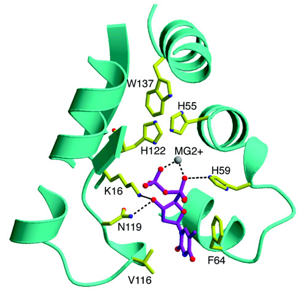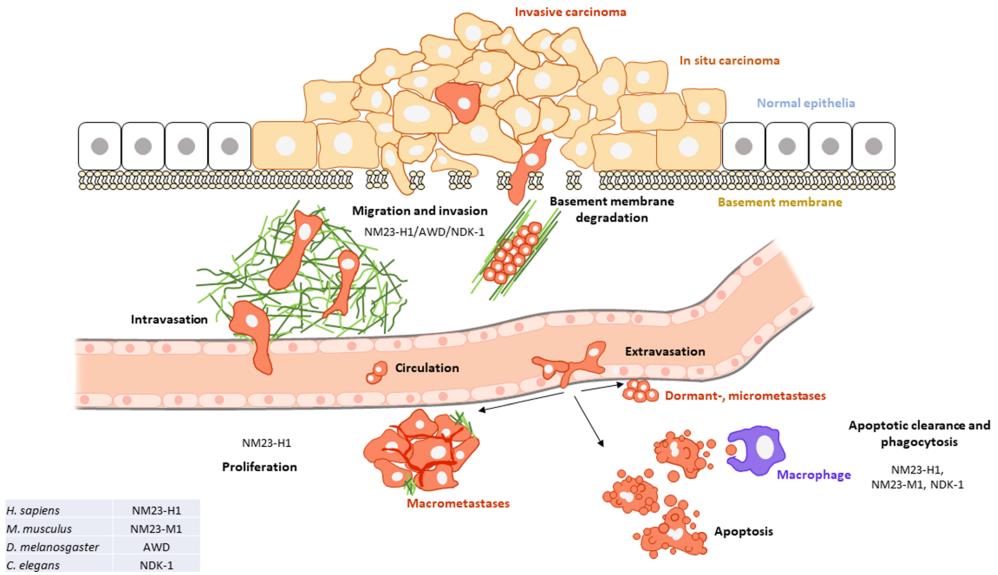NAA Services for Anti-Nucleoside Diphosphate Kinase A
Equipped with years of experience and high-end technologies in NAA (natural autoantibodies) research, Creative Biolabs has successfully developed world-leading and comprehensive NAA platforms to provide fast and convenient services for our global customers. At present, we are able to provide a full range of anti-nucleoside diphosphate kinase A marker services for diseases diagnosis and therapeutic monitoring. Our professional team has been optimized to help you get a milestone development in your NAA project.
Background of Anti-Nucleoside Diphosphate Kinase A
Nucleoside-diphosphate kinases (NDPKs), also known as nucleoside diphosphokinases, are enzymes that catalyze the exchange of terminal phosphate between different nucleoside diphosphates and triphosphates in a reversible manner to produce nucleotide triphosphates. NDPKs are homo hexameric proteins consisted of NDPK-A and NDPK-B, which share 88% amino acid sequences. NDPK-A, also called Nme1 or Nm23-H1, is a multifunctional kinase that plays important roles in several biochemical functions like ATP binding, GTP binding, DNA repairing, and deoxyribonuclease activity. Studies have demonstrated that NDPK-A is able to act as a putative metastasis suppressor in various cancer metastases. Anti-nucleoside-diphosphate kinase A (Anti-NDPK-A) is an autoantibody directly reacting with NDPK-A which can be applied for characterization and detection of related diseases.
 Fig.1 Active site of DictyosteliumNDP kinase. (Gallois-Montbrun, et al., 2002)
Fig.1 Active site of DictyosteliumNDP kinase. (Gallois-Montbrun, et al., 2002)
The Role of Anti-Nucleoside Diphosphate Kinase A in Primary Liver Cancer
Among all malignant tumors in the world, hepatocellular carcinoma (HCC), one style of the primary liver cancer, is the fifth leading cause of death for about 1 million people every year. The etiology and carcinogenesis of HCC are multifactorial and multistage. The multi-step process of HCC may involve chronic inflammation, cell death, cirrhosis and regeneration, DNA damage, dysplasia, and finally HCC. So far, some genetic or epigenetic changes have been discovered. However, these changes do not always reflect the biological or clinical characteristics of all HCCs.
NDPK was initially identified as a basic internal enzyme for the synthesis of nucleoside triphosphate and plays a role in maintaining intracellular nucleotide concentration. The altered NDPK expression is involved in many cellular processes, including tumorigenesis, cell proliferation, differentiation, motility, development, DNA repair, and apoptosis. Many animal models and clinical studies have investigated and confirmed the relationship between NDPK-A and cancer, which indicates an inverse association between NDPK-A expression and the metastatic potential of human solid tumors. NDPK-A expression decreased highly aggressive HCC, whereas, overexpression inhibited cell migration and invasion of the hepatocarcinoma cell line. Therefore, NDPK-A antibody against NDPK-A would be a useful reagent for diagnosis and prognosis for HCC.
 Fig.2 The role of NM23-H1 in processes related to the carcinoma metastatic cascade.2
Fig.2 The role of NM23-H1 in processes related to the carcinoma metastatic cascade.2
What We Can Do about NAA?
Aided by our well-established platforms and experienced scientists, we can provide comprehensive NAA services, from NAA detection, NAA profiling, to NAA epitope mapping. A wide spectrum of NAA products is available for your choice.
Creative Biolabs is capable to provide the largest and diversiform portfolio of NAA products and services about NAA. Our proven and optimized platforms can help you quickly get satisfactory results without repeated trials. We also provide customized services according to our clients’ requirements to meet the specific demand. Please contact us for more information.
References
- Gallois-Montbrun, Sarah, et al. "Improving nucleoside diphosphate kinase for antiviral nucleotide analogs activation." Journal of Biological Chemistry 277.42 (2002): 39953-39959.
- Mátyási, Barbara, et al. "The function of NM23-H1/NME1 and its homologs in major processes linked to metastasis." Pathology & Oncology Research 26 (2020): 49-61.
Related Services:
- NAA Services for Anti-Nucleophosmin (NPM) 1
- NAA Services for Anti-DNA Topoisomerase II
- NAA Services for Anti-Cytokeratin 8
- NAA Services for Anti-CENPF
- NAA Services for Anti-α Fetoprotein (AFP)

